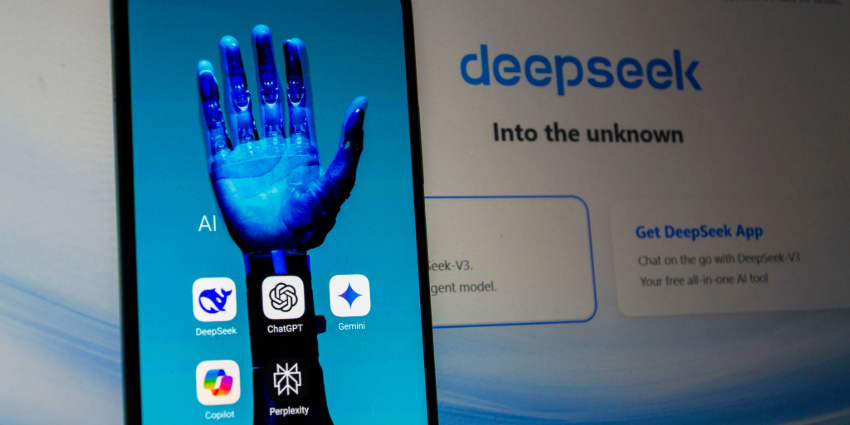This week, EpochAI, under sponsorship from Aria Research, unveiled revealing information regarding the innovation and increasing power of NVIDIA GPU chipsets, just as the leading computing firm fights a growing AI shark tank of software solutions and hardware providers.
Despite post-DeepSeek shockwaves hitting the firm a few weeks ago, Epoch AI’s research appears to reiterate the power of NVIDIA GPUs and its strength in the AIO market, just as the firm increasingly debuts hardware to match enterprise AI integrations at all levels, from development to deployment.
How much AI compute exists globally? How rapidly is it growing?
We analyzed NVIDIA’s GPU shipments since 2018 to answer these questions, and found that the installed computing power of NVIDIA chips has doubled every 10 months on average, since 2019. pic.twitter.com/X7HIv6nOFM
— Epoch AI (@EpochAIResearch) February 13, 2025
Epoch AI notes that the group analyzed NVIDIA’s GPU shipments since 2018, discovering that NVIDIA GPUs have doubled in computing power every “10 months on average, since 2019.”
More specifically, this data means that NVIDIA’s total installed compute power has grown more than two times per year since 2019. In the same X thread, Epoch AI added that comparatively, “training compute for frontier models has grown 4-5x per year over the same period, suggesting that compute scaling could eventually become bottlenecked by the slower (but still rapid!) pace of chip production.”
The research tracked NVIDIA GPU computing powering by leveraging NVIDIA financial report data, along with a forthcoming dataset covering more than 700 AI data centres, “this dataset enables us to see the relative quantities of each GPU model as they come into operation,” Epoch AI explained in the X thread.
Breaking it down by chip generation, we see that currently about 77% of all NVIDIA FLOP/s come from Hopper-generation GPUs like the H100. Currently, there are 4M H100-equivalents of operational NVIDIA chips in data centers around the world! pic.twitter.com/HkJOZXkf7i
— Epoch AI (@EpochAIResearch) February 13, 2025
NVIDIA Growth Hit by DeepSeek
NVIDIA strives to establish itself as a leading provider of AI chipsets, with many AI solution providers depending on NVIDIA as a crucial hardware partner. However, despite a strong start at CES 2025, NVIDIA’s quest for market dominance faces stiff competition from other AI leaders. This includes the recent introduction of the OpenAI chipset and the launch of services like DeepSeek, which have significantly disrupted the industry.
NVIDIA is focused on expanding its Blackwell chip portfolio to meet the demands of AI and real-time 3D content creation, distribution, and utilization. This initiative also encompasses Project DIGITS, an upcoming advanced personal AI supercomputer powered by the Grace Blackwell platform, which poses a significant challenge.
Nevertheless, NVIDIA may not remain at the forefront indefinitely as the technology landscape continually evolves with the emergence of new players. Introducing DeepSeek’s innovative AI capabilities has caused a stir on Wall Street, leading to NVIDIA’s largest single-day market value loss in history. The company’s shares fell by an astonishing 17%, resulting in nearly $600 billion being erased from its market value.
Consequently, NVIDIA’s stock price has returned to levels not seen since October 2024. The fallout also affected the broader tech sector, with Google’s parent company, Alphabet, dropping by 4%, Microsoft decreasing by 2%, and Dell Technologies—a key manufacturer of AI servers—falling by 8.7%.
On the OpenAI front, the leading firm announced the development of a dedicated AI custom chipset that could potentially challenge NVIDIA’s dominance in hardware reliance. Reports indicate that OpenAI is collaborating with Taiwan Semiconductor Manufacturing Company (TSMC) to create a custom chip to train AI models.
By partnering with TSMC, OpenAI can utilize the company’s advanced chipset technologies, including 3-nanometer process technology, to develop a competitive stack similar to NVIDIA’s AI chipsets without depending on NVIDIA’s hardware.
Richard Ho is spearheading this initiative at OpenAI, likely drawing on his prior experience in AI chip development from his time at Google. While Ho’s team dedicated to this chipset development is notably smaller than those at competing firms, it may grow once the design is finalized later this year.
The OpenAI chipset development follows the Stargate Project, a massive initiative supported by OpenAI, Oracle, and international investors, with a budget of $500 billion earmarked for AI infrastructure. This project was announced by President Trump, who emphasized its goal of securing “the future of technology” within the United States, thereby fostering a more competitive AI landscape.








